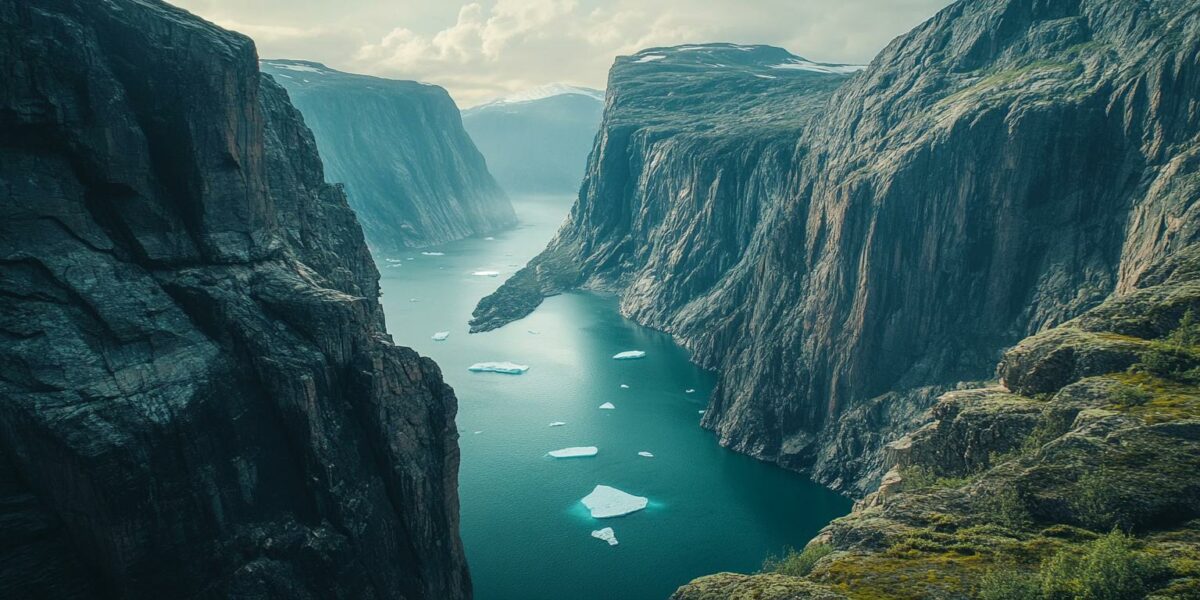Astonishing Global Seismic Discovery
In an intriguing event last year, unprecedented seismic waves puzzled scientists worldwide. Detected on September 16, 2023, these waves reverberated globally for nine days. Unlike typical quakes or tsunamis, which last minutes and are localized, this phenomenon spread far and wide, leaving experts searching for answers.
Termed a “very-long-period” (VLP) signal, it had a frequency of 10.88 millihertz, representing a 92-second interval between peaks. The signal’s length and slow tapering were unlike any recorded earthquake or tsunami, sparking numerous hypotheses about its cause, from tectonic shifts to volcanic activity.
The enigmatic signal was initially classified as an “unidentified seismic object” (USO), traced to Dickson Fjord in Greenland. Spanning 540 meters in depth and 2.7 kilometers in width, the fjord became the focus of intense study as researchers sought to unravel the event’s origins.
Recently, a breakthrough study involving 68 scientists from 40 institutions identified the cause: a climate change-induced tsunami. Using field measurements, satellite imagery, and simulations, they discovered the seismic waves resulted from a massive landslide in Greenland.
Understanding the Seismic Phenomenon
The research team pieced together a complex series of events leading to the seismic signal. A 25 million cubic meter rockslide plunged into the fjord, shattering a glacier. This avalanche triggered a tsunami, marking a groundbreaking discovery in the realm of seismic studies.
- Similar smaller tsunamis have occurred globally, including a 2017 Greenland event.
- Such seismic waves typically last for minutes, not days.
- The latest event was unique in its nine-day duration and global reach.
In the fjord, the tsunami reflected off its sides, creating a standing wave, or seiche. This standing wave was further reinforced due to the fjord’s shape, resulting in a stationary wave of immense magnitude that slowly dissipated over time.
The study highlighted key findings linking the seiche to the VLP signal, including frequency similarities and consistent decay rates. Seismic modeling also aligned the force of the fjord’s waves with the VLP signal pattern, confirming the event’s unique nature.
The Climate Connection
Climate change was identified as the root cause of the landslide. The thinning of glaciers due to warming left slopes unsupported, increasing the likelihood of rockslides. The study emphasized how climate change amplifies landslide risks through mechanisms like glacier melting and intense rainfall.
Around 70% of global glacier mass loss is attributed to human-induced warming, predominantly from greenhouse gas emissions. This not only contributes to sea level rise but also elevates tsunami risks, underscoring the interconnectedness of climate factors.
Past events have illustrated these risks, such as a 2013 landslide-induced flood in India that claimed over 6,000 lives. Scientists stress the need to understand and prepare for such cascading environmental hazards exacerbated by climate change.
The findings underscore the urgent necessity to mitigate climate change by drastically reducing emissions and embracing renewable energy. The study concludes that tackling these challenges is crucial to preventing further catastrophic events.
A Call for Change
The paper suggests that the climate crisis is tied to broader systemic issues, advocating for a socialist approach to address the root causes of environmental destruction. It calls for global cooperation to prioritize environmental sustainability over profit motives.
The climate crisis poses a significant threat to humanity, particularly affecting vulnerable populations. Increasingly severe weather events, including landslides and tsunamis, highlight the urgency of addressing climate change.
While advanced scientific methods are employed to predict and mitigate these hazards, true resolution requires systemic change. The research stresses the need to shift away from fossil fuels and embrace sustainable solutions on a global scale.
Ultimately, the report emphasizes the critical need for international collaboration and innovative policies to combat climate change and prevent future disasters, ensuring a safer planet for future generations.



piper
Seismic waves lasting nine days? That sounds like something out of a sci-fi movie! 😂
Chase
I wonder if this kind of event could be predicted in the future. Should we be worried about more rockslides triggering global effects?
Theodore_Specter
Thanks for sharing this! It’s alarming how interconnected our planet is. We really need to act on climate change now.
Jayden
This is a fascinating read, but I’m a bit skeptical about linking it solely to climate change. Are there other contributing factors?
Olive
Wow, a nine-day seismic event?! That’s mind-blowing! 🤯
Jordan
How does a rockslide in Greenland manage to have a global impact? I’m curious about the mechanics behind this!